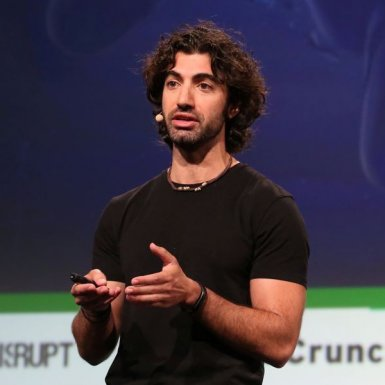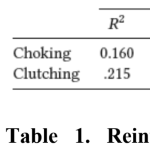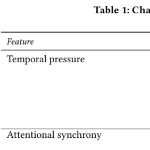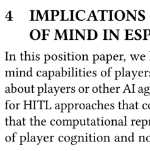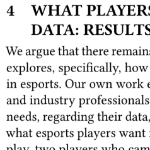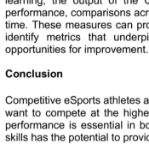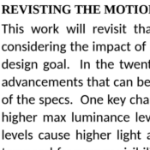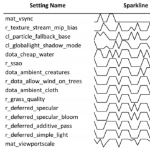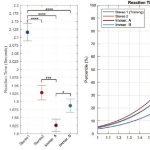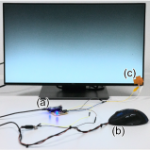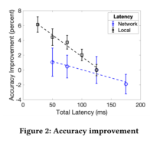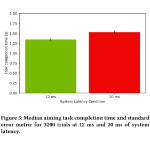WORKSHOP SUMMARY
Competitive esports is a growing worldwide phenomenon now rivaling traditional sports, with over 450 million views and 1
billion US dollars in revenue each year. For comparison, Major League Baseball has 500 million views and $10 billion in
revenue, FIFA Soccer 900 million and $1.6 billion. Despite this significant popularity, much of the world remains unaware
of esports — and in particular, research on and for esports is still extremely scarce compared to esports’ impact and
potential.
The Esports and High Performance HCI (EHPHCI) workshop will begin addressing that research gap. In esports, athletes
compete through the computer interface. Because this interface can make the difference between winning and losing, esports
athletes are among the most expert computer interface users in the world, as other athletes are experts in using balls and
shoes in traditional sports. The premise of this workshop is that people will apply esports technology broadly, improving
performance in a wide range of human activity. The workshop will gather experts in engineering, human factors, psychology,
design and the social and health sciences to discuss this deeply multidisciplinary enterprise.
WORKSHOP DATE AND ONLINE ACCESS
The EHPHCI workshop will be held online on Saturday May 8, as part of the ACM CHI
Conference. The workshop will run from 1300 - 1800 UTC
(this site shows your local time).
Workshop registration and attendance requires an access code. If you do not already have a code, you may email the
organizers to request one, but unfortunately, codes are limited. Registration costs $30, plus the cost of at least a one day
registration for ACM CHI. After registering, you may access the workshop
through CHI's Delegate Connect
service, which uses Zoom. In addition, we have created a workshop Discord server, which you may access using this
invitation link.
Videos of EHPHCI's presentations are now available at its
YouTube channel.
PROGRAM
EHPHCI Session 1: Introduction and Keynote (1300 - 1350)
Welcome & Keynote Introduction:
The organizers welcome authors and attendees to the workshop, and introduce the keynote speaker, Amine Issa.
(1300 - 1310)
Session co-chairs — Kim J, Spjut & Watson
Keynote — Amine Issa:
Amine earned his doctorate at the Mayo Clinic researching the extremes of human performance, with his findings
developed into technology for mobile health and remote monitoring. He played video games for decades,
and competed professionally for a couple years. He found many broader lessons in performance
that can be learned from the arena of esports. He channelled both his performance and gaming passions to
found Mobalytics, a performance assessment and optimization platform for gamers.
(1310 - 1335)
Discussion:
Amine discusses his keynote with attendees.
(1335 - 1350)
EHPHCI Session 2: Players and Teamwork (1400 - 1450,
videos)
Attendee introductions:
One third of attendees introduce themselves briefly.
(1400 - 1410)
Session co-chairs — Lee & Putrino
Introductions — Lee, Putrino, Borduas, Claypool, Daly, Kiefer, Klarkowski & Kleinman
Paralysis by Analysis: Choking, Clutching, and Reinvestment in Competitive Gameplay
Nicole Beres, Madison Klarkowski and Regan Mandryk
(1410 - 1417,
video)
Abstract: Video games frequently invoke high-pressure circumstances in which player performance is crucial.
These high-pressure circumstances are incubators for ‘choking’ and ‘clutching’ — phenomena that broadly address
critical failures and successes in performance, respectively....
Esports and Domain General Research for High Performance Teams
Jason G. Reitman and Constance Steinkuehler
(1417 - 1424,
video)
Abstract: Through our work studying team communication and awareness under stress in elite and developing
esports teams, we are building a foundation for testing the generalizability of findings between similar teams in
disparate domains....
Discussion:
The session's authors take and discuss questions as a single panel.
(1438 - 1450)
EHPHCI Session 3: Perception (1500 - 1550,
videos)
Attendee introductions:
(1500 - 1510)
Session co-chairs — Kim J & Watson
Introductions — Kim J, Watson, Listman, Liu, Madhusudan, Park, Reitman & Saul
Revisiting the Perceived Motion Model that Predicted 360 fps Displays
Scott Daly
(1517 - 1524,
video)
Abstract: A previous model of motion perception used in engineering display and signal format design predicted
the need for a 360 FPS (frames per second) and 1080-line display and image signal format system, in order to match the
viewing of reality. Now that 360 FPS gaming monitors are on the market, the model is revisited with twenty years of new
studies, display technology advancements such as HDR ....
Benefits of Immersive Spatial Audio on Athlete Reaction Times in E-sports
Alex Brandmeyer, Nathan Swedlow and Poppy Crum
(1531 - 1538,
video)
Abstract: Recreational gaming and competitive e-sports represent a highly significant and growing sector
of the home entertainment market. As the underlying technologies (consoles, PCs) that support gaming have scaled
in capacity (e.g. CPU, GPU, RAM, DSP, controllers/interfaces, display technologies, etc.), game developers have
been able to leverage this increased capacity to create richer worlds....
Discussion:
The session's authors take and discuss questions as a single panel.
(1538 - 1550)
EHPHCI Session 4: Latency (1600 - 1650,
videos)
Attendee introductions:
(1600 - 1610)
Session co-chairs — Kim S & Listman
Introductions — Kim S, Listman, Schmid, Seif El-Nasr, Shergadwala, Spjut, Swedlow, Akhillesh, Wimmer... and anyone we left out!
Yet Another Latency Measuring Device
Andreas Schmid and Raphael Wimmer
(1610 - 1617,
video)
Abstract: End-to-end latency — the time a computer system needs from an input event until output is displayed —
directly influences task difficulty and user experience. It is therefore an important topic in HCI research. Different
human-computer interfaces require different....
A Case Study of First Person Aiming at Low Latency for Esports
Josef Spjut, Ben Boudaoud and Joohwan Kim
(1624 - 1632,
video)
Abstract: Lower computer system input-to-output latency substantially reduces many task completion times. In fact, literature shows
that reduction in targeting task completion time from decreased latency often exceeds the decrease in latency alone. However, for aiming....
Discussion:
The session's authors take and discuss questions as a single panel.
(1632 - 1644)
Formal closing:
The organizers end the formal part of the EHPHCI program, and introduce the informal part.
(1644 - 1650)
EHPHCI Session 5: Gameplay and Informal Discussion (1700 - 1750)
Informal time:
Attendees get to know one another a bit by moving from the official ACM CHI platform to Discord video
breakouts and online games. Feel free to eat and drink!
SUBMISSIONS
EHPHCI has two submission tracks: short papers (research, position or case study) and posters.
Short Research Papers
We invite submission of research papers between 2 and 4 pages long, with length matching content.
Research papers will be reviewed based on how well claims are supported by evidence. Submissions are
expected to include all materials and data needed to replicate and reproduce any figures, analyses,
and methods. If anything cannot be publicly shared (e.g., for data privacy concerns), state the
reason in the paper.
Short Position Papers
We invite submission of position papers between 2 and 4 pages long, with length matching content.
Position papers are problem discussions or statements describing the author's relevant experience and
ideas with regards to esports and high performance HCI research, and in particular the focus topic of
the workshop. Position papers will be selected according to their importance and relevance for the
workshop topics and how well they will fit the planned discussions.
Short Case Study Papers
We invite submission of position papers between 2 and 4 pages long, with length matching content.
Case study papers describe applications of esports and high performance HCI technology. Case study
papers will be selected by their match to workshop themes, and their likelihood to generate discussion.
Posters
We invite both late-breaking work and contributions in this area in the form of extended abstracts 1
to 2 pages in length (plus an additional page for references).
IMPORTANT DATES
Deadlines are at 11:59 PM in the
last timezone on Earth.
Submission deadline: January 31 February 24, 2021
Notification: February 21 March 17, 2021
Speaker schedule available: April 1 April 2, 2021
Camera-ready deadline: April 1 April 10, 2021
Workshop: Saturday, May 8, 2021
ORGANIZERS
The quickest way to contact EHPHCI's organizers is via their shared email,
ehphci@googlegroups.com.
To stay connected to the workshop and its community,
join its google group.
Ben Watson, North Carolina State University
(bwatson@ncsu.edu)
Josef Spjut, NVIDIA Research (jspjut@nvidia.com)
Joohwan Kim, NVIDIA Research
(sckim@nvidia.com)
Jennifer Listman, Statespace Labs
(jenny@statespacelabs.com)
Sunjun Kim, DGIST (sunjun_kim@dgist.ac.kr)
Raphael Wimmer, University of Regensburg
(raphael.wimmer@ur.de)
David Putrino, Mt Sinai Health System
(david.putrino@mountsinai.org)
Byungjoo Lee, KAIST (byungjoo.lee@kaist.ac.kr)
